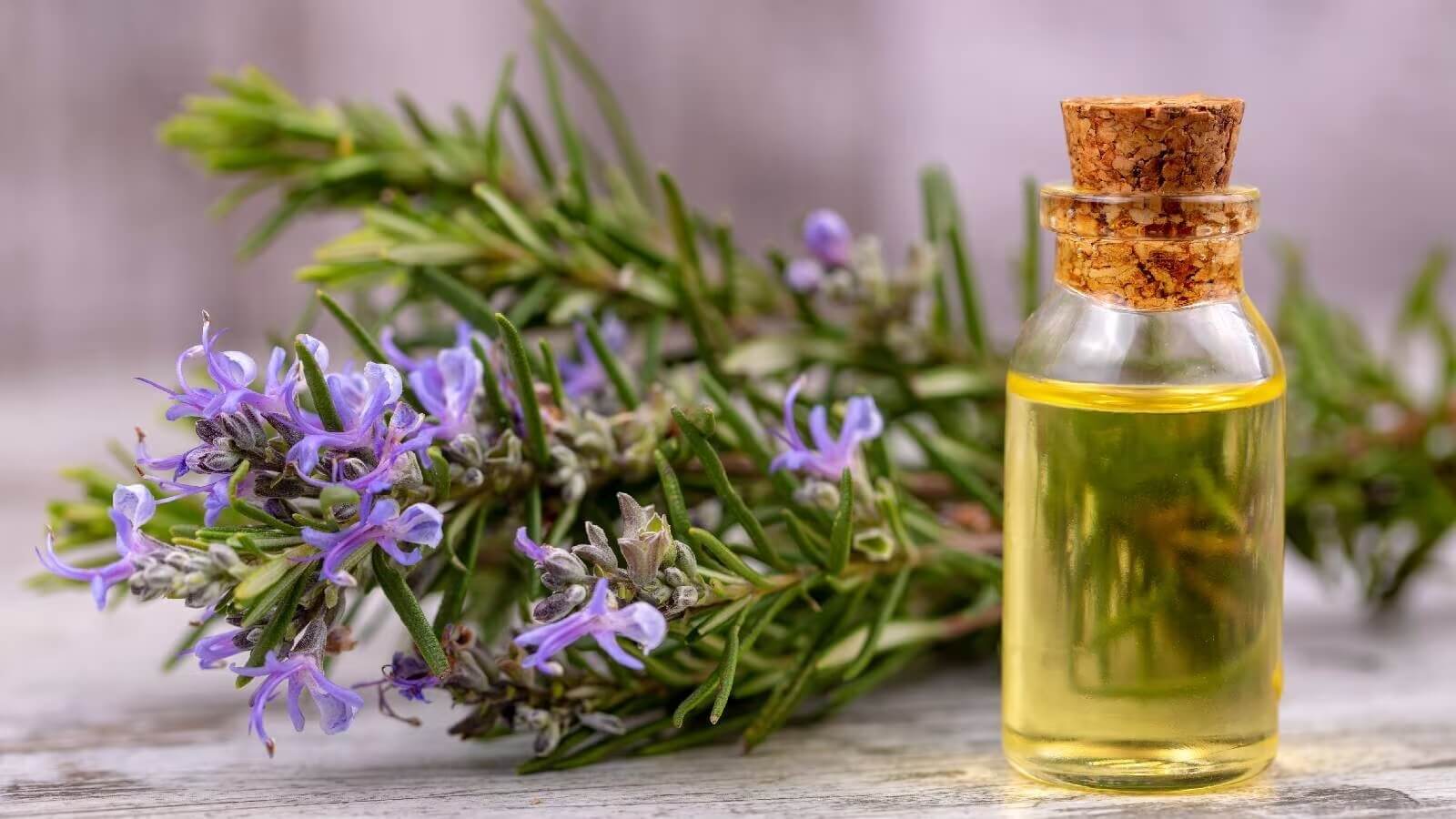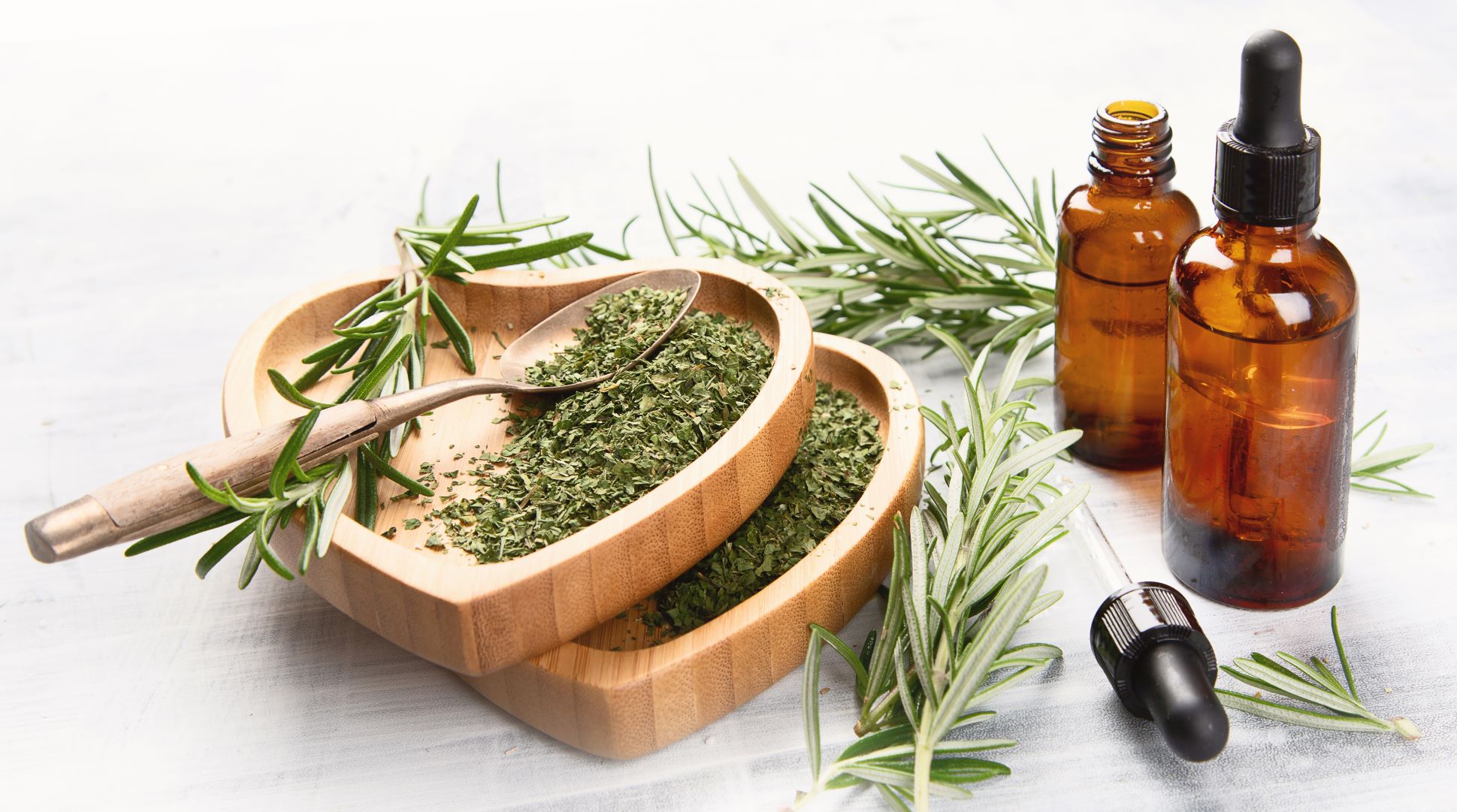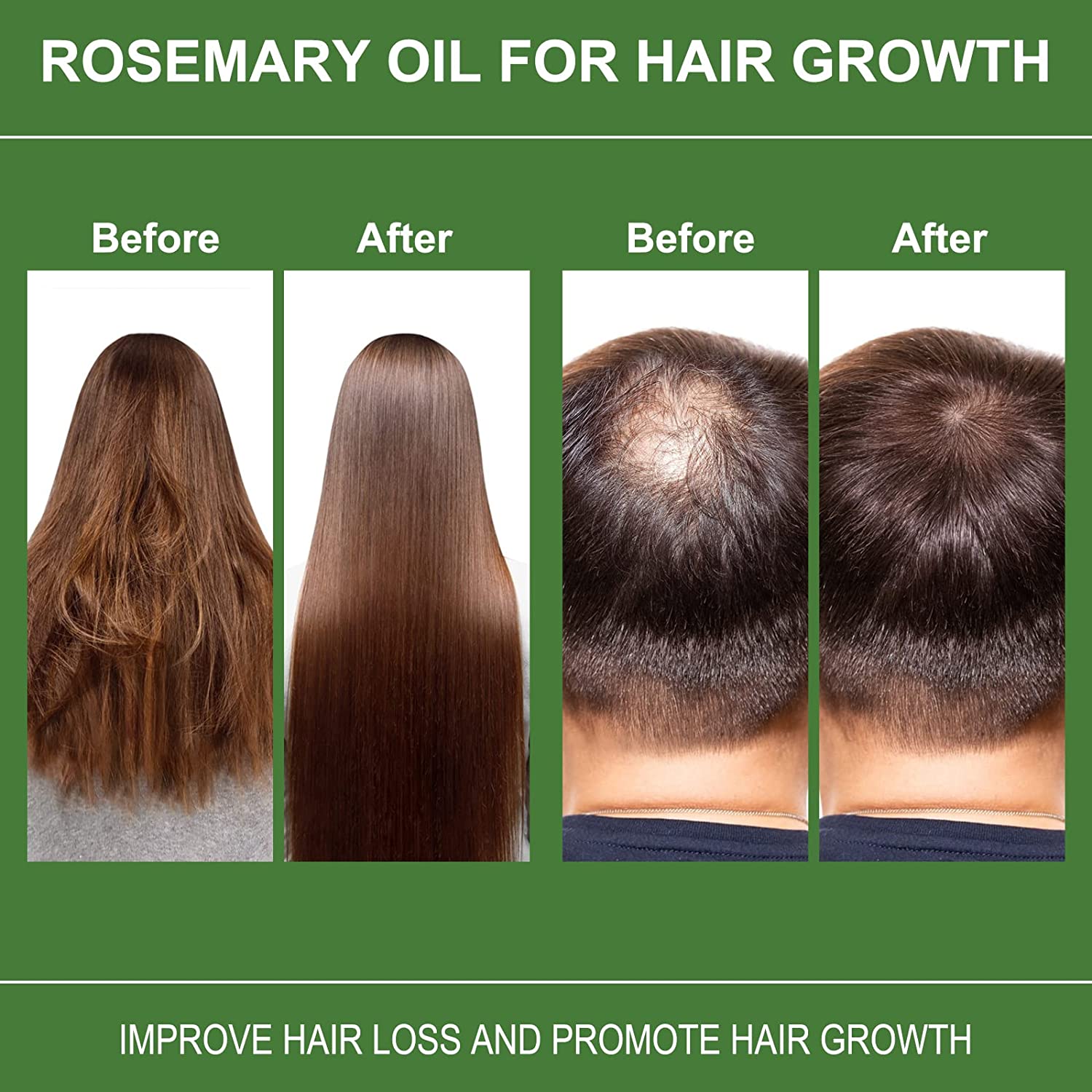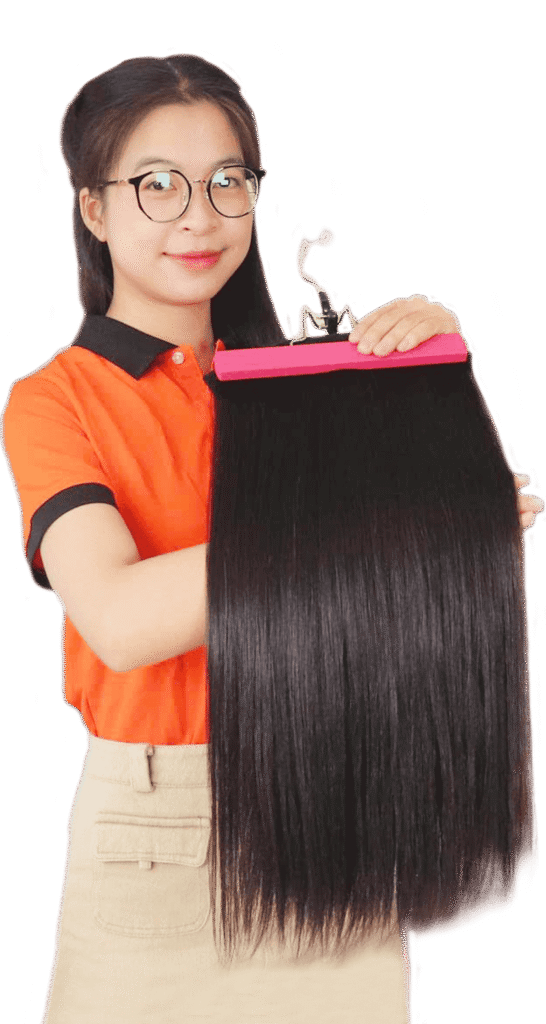Hair oil has been touted as the item to have in your hair care routine – they are believed to have a variety of benefits, from strengthening the hair and preventing frizz to protecting against heat damage and even promoting hair growth, in which rosemary oil has ticked off all four. Nowadays, TikTok is a popular app that delivers interesting and unique special effects to create wonderful short-duration videos, from peptide serums to rice water, the topic of hair growth has been taking over TikTok recently, with countless solutions now sitting under the hashtag. Among that the #RosemaryOil tag garners over 984.9M views and countless videos showcasing user success stories. So whether rosemary oil is truly good for our hair or not? Let’s see if – and how – they can help promote hair growth.
I. Rosemary Oil For Hair: What Are They?
There’s growing interest in finding naturally-derived solutions to help with hair growth, either to promote longer, healthier hair or in individuals with hair thinning, and Rosemary essential oil become one of the most common varieties with countless useful from antioxidant benefits, anti-inflammation to memory enhancement and more.

Rosemary is both a culinary and a medicinal herb. This woody perennial is native to the Mediterranean region, where it has been used for centuries as food and medicine. Rosemary, like oregano, peppermint, and cinnamon, is commonly found in essential oil forms. Essential oils are distilled extracts of volatile plant compounds that are highly concentrated. These are used in cooking, cleaning, beauty, and health care, among other things.
II. What Are The Benefits Of Rosemary Oil For Hair?
Rosemary is a culinary and healing herb. This woody perennial is native to the Mediterranean region, where it’s been used as food and medicine for centuries. Much like oregano, peppermint, and cinnamon, rosemary is frequently found in essential oil form. Rosemary contains compounds that have anti-inflammatory, antimicrobial, and antioxidant properties. All of these properties reduce scalp irritation, and antioxidants in particular help protect your hair from external aggressors like pollution.

It is best known for its antiseptic properties on the scalp, which means it is excellent for eliminating dandruff. Furthermore, rosemary oil can help with nourishment and locking in moisture in the hair, and it has properties that improve blood circulation to the scalp while removing bacteria that clog hair follicles. Simply put, this results in stronger strands and a healthier scalp.
III. Does Rosemary Oil Really Help For Hair Growth?
In short, yes! Rosemary oil has a definite track record of supporting healthy hair growth and regrowing hair. The idea that rosemary oil encourages hair growth may come from rosemary’s basic health benefits.

According to William Gaunitz, certified trichologist and founder of Advanced Trichology, a 2015 study compared 2% minoxidil (an FDA-approved treatment for hair loss) to rosemary oil over a period of six months and found a similar increase in hair counts with both treatments. Both products had comparable results, but the rosemary oil was actually more beneficial, as it did not irritate the scalp as much as minoxidil.
Another study found that rosemary [essential] oil was an effective treatment for the patchy hair loss condition known as alopecia areata. The problem is the quality of the oil can vary. It depends on many factors, including the growth conditions of the plant, the quality of the plant collected, and how it was handled prior to extraction.
→ Beyond stimulating hair growth, rosemary essential oil is used to prevent premature graying and dandruff. It may also help with a dry or itchy scalp.
IV. How To Use Rosemary Oil For Hair Growth?
Remember that rosemary oil contains fatty acids, so it is best to use it conservatively to avoid an oily scalp and greasy hair.

The best way to apply rosemary oil for hair and scalp retention is by lightly applying the serum to the scalp and massaging it throughout the hair. The amount of rosemary oil that will be used directly on the hair will vary depending on one’s hair density. Make sure to apply directly to the scalp about three times a week, gently massaging in with your fingertips to help increase blood flow and absorption. We recommend rosemary oil be “applied as a leave-on product, so it has a greater chance of exerting its effects.”
If you’re really looking to promote hair growth and get the luscious hair of your dreams, you can pump up the effects of rosemary oil with some scalp-benefiting products.
V. Side Effects
My grandma often says that “nothing is completely perfect, everything has its own dark side” and rosemary oil is also not exceptional. Though rosemary oil is a natural herb (which is generally safe to use) some may want to proceed with caution. Rosemary essential oil has been known to irritate the skin. It may cause discomfort, but no health dangers. If your scalp is on the sensitive side and you’re worried about how your skin may react, you should do a patch test first.

If you are going to use rosemary oil, make sure you’re diluting it with another oil-based product and massaging it into your scalp, mixing four or five drops with a teaspoon of carrier oil, like coconut oil. You can then massage it evenly into your scalp. Scalp massaging can help increase hair thickness by stretching the cells of hair follicles, which then stimulates the follicles to produce thicker hair. Never apply rosemary oil to inflamed or broken skin.
VI. Conclusion
Rosemary has been used by many to promote hair growth successfully. Using rosemary essential oil could very well do the same for you. Science and personal experience together both strongly suggest that essential oil does protect against hair loss, particularly that related to male or female pattern baldness. It may even be effective for alopecia. Rosemary essential oil is a simple remedy that you can use at home, and it may even be competitive with commercial products. What’s more, it’s quite safe when used correctly and yields very few side effects.


 BEST SELLING PRODUCTS
BEST SELLING PRODUCTS Wig Hair
Wig Hair WHOLESALE
WHOLESALE Contact us
Contact us Sale Events
Sale Events
